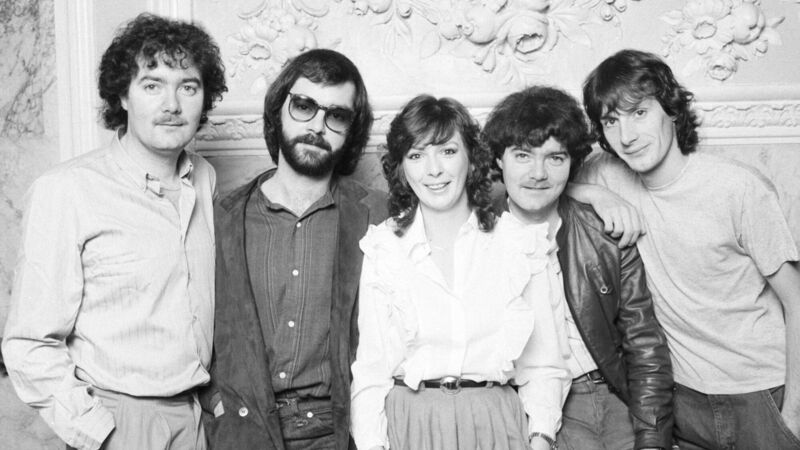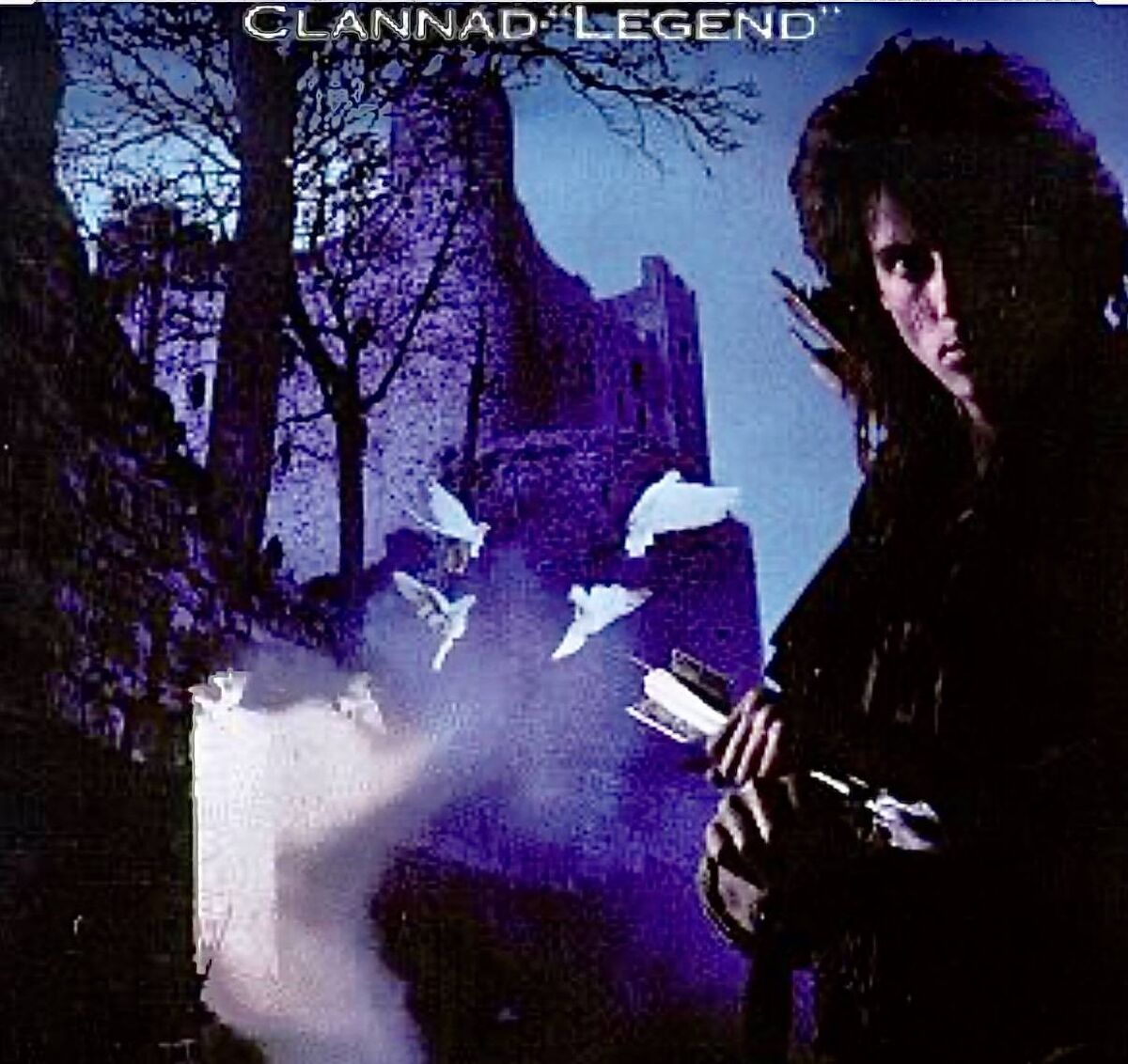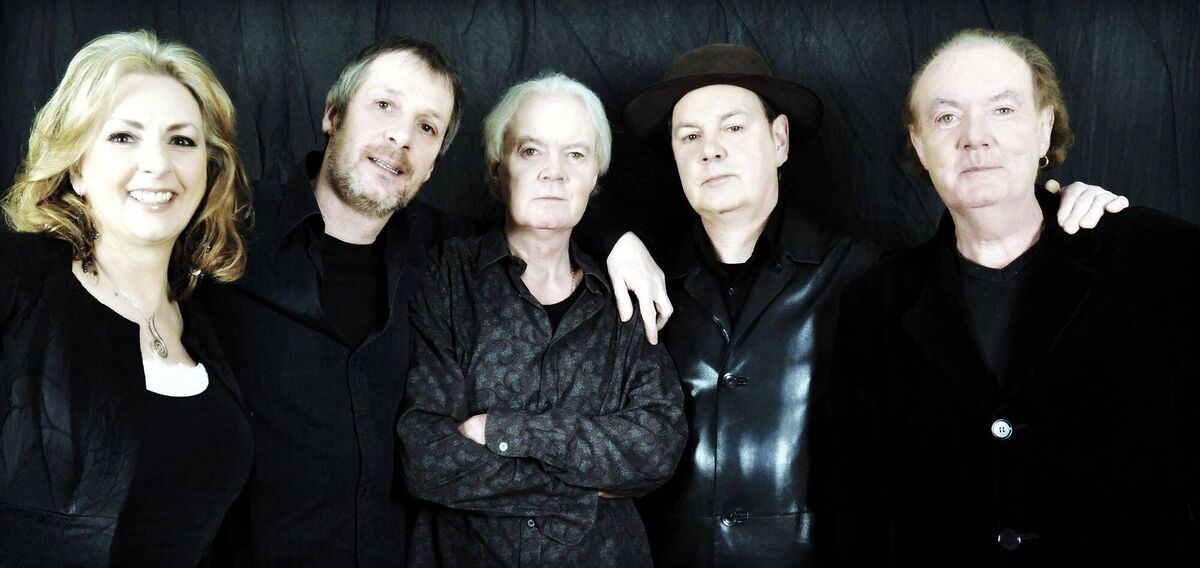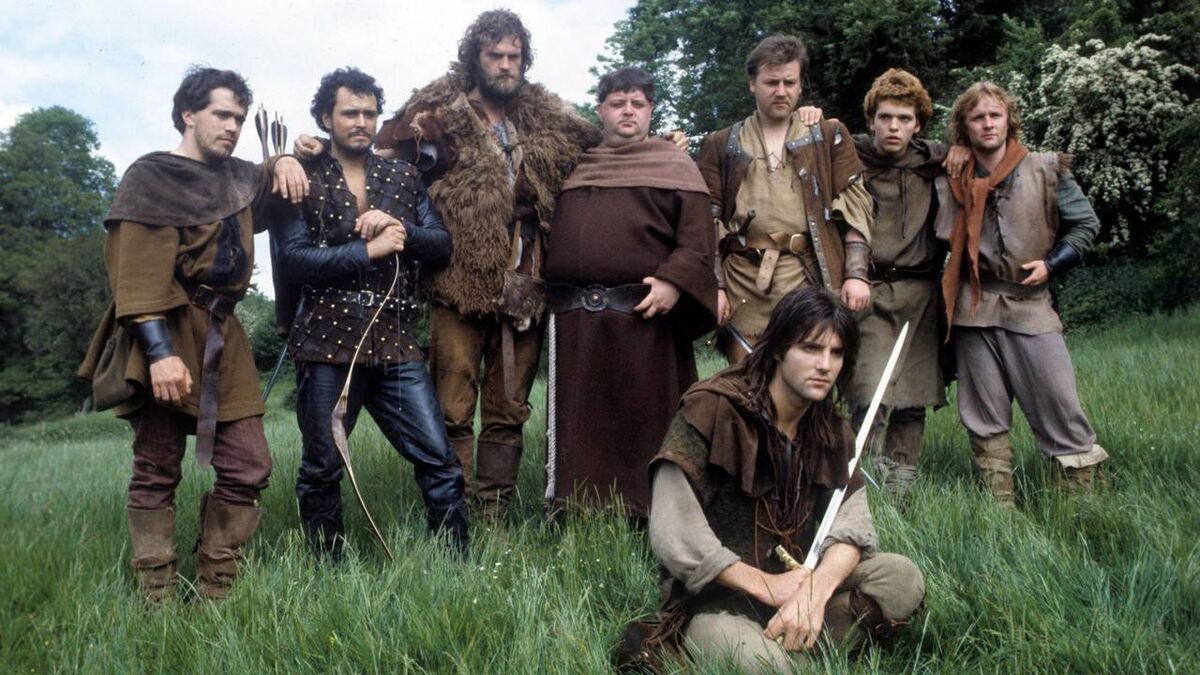Ireland In 50 Albums, No 3: Legend, by Clannad (1984)

Clannad in the early 1980s: Noel Duggan, Ciaran Brennan, Moya Brennan, Padraig Duggan and Paul Brennan. (Picture: H McCarthy/Express/Getty)
The story of how a family from the Donegal Gaeltacht become synonymous with English folk hero Robin Hood starts in Los Angeles in the early 1980s.
It was to Hollywood producer Richard 'Kip' Carpenter had gone seeking investment for his retelling of the story of the brigand-prince of Sherwood Forest. To his shock, the executives had never heard of Robin Hood. So he tried to pitch it to the room on terms they would understand. It might help, he suggested, to think of Robin Hood as “the Dukes of Hazard with bows and arrows’.
That won them over. And so was born , Carpenter's moody and supernatural retelling of the “Hooded Man”. Even in 1984, Robin Hood was no newcomer to the screen — Errol Flynn had played Robin Hood as a larrikin in emerald leggings; audiences of that time would have been familiar, too, with , Mel Brooks’ 1975 American sit-com tilt at the mythology.
Carpenter’s take was different, however. Drawing on pre-Christian mythology it drilled into Britain’s pagan psyche, cloaking Robin’s adventures in a haze of Celtic mysticism and framing the character as the spiritual son of Herne the Hunter.
ran for just three seasons, from 1984 to 1986. But it remains one of the most beloved British TV shows of the decade and still stands up today. Much of that enduring appeal is connected to the Clannad soundtrack, Legend. It is impossible to think of without harking back to Clannad’s iconic theme tune and its gloomy refrain of “Robin… the Hooded Man”.
Clannad bow out with a farewell concert at 3Arena, Dublin on February 18. What better time to tell the story of Robin of Sherwood and the legend of Legend?

Clannad didn’t form in the conventional sense so much as coalesce in the mists of Gweedore in the Donegal Gaeltacht. The origins of the band go back to 1970 when siblings Moya, Ciarán and Pól began to play in their father’s pub, along with their twin uncles, Noel and Pádraig Duggan, initially as Clann as Dobhar (from the Irish for Gweedore, “Gaoth Dobhair”). Later their younger sister Eithne would briefly join. She would go on to have global success as Enya.
“We were playing together. When my father opened a pub [Leo’s Tavern] in 1968. The boys were playing. We’d get up on stage,” says Moya. “When everyone would leave they pub, we’d keep playing. When we entered the Letterkenny Folk Festival [in 1973] it was really for a bit of craic. We had no idea it was something we’d actually win [for their song Liza]. We were still at school. We still didn’t know what we were going to do with the name Clannad. In 1973 we did the first album [the self-titled Clannad] not thinking it was going to be anything.”
“We were a summer garage band,” adds Pól Brennan. “We had a stage obviously where we could experiment. An instant place to get a response. Growing up in Gweedore we were experimenting with the gaelic songs. Those were the beginnings.”
Singing in Irish was a huge novelty at the time. Ireland in the early 1970s had a complicated relationship with its linguistic and musical heritage, to which could be added a crippling inferiority complex. On the Continent, however, Clannad were welcomed. Audiences in Germany regarded the group as custodians of a mystical Celtic flame.
“People in Ireland thought we were mad singing in Irish,” says Moya. “We were blessed that a couple came from Germany and loved what we were doing. They invited us to a 30-day Irish festival with other artists. We were the last getting on stage, doing half an hour. We were having a time of our life. This was 1975: the last gig was at the concert hall of the Berlin Philharmonic. We got a standing ovation. Afterwards, in the dressing room, we looked at each other and said: ‘will we give it a shot and go professional?”
They were soon receiving acclaim in the United States, too. “The group is very traditional in that it performs authentic folk material, much of it sung in Gaelic. But the instrumentation and arrangements betray influences from rock and jazz,” wrote the of a 1979 concert in Greenwich Village.

At home, it took until 1982 for people to come around to Clannad. The catalyst was the 1982 BBC IRA thriller, , for which Clannad provided the haunting theme tune. A hit on both sides of the Irish sea, it created history as the only British top 20 single sung entirely in Irish, the “Fol lol the doh fol the day” chorus is inspired by ancient Irish "mouth music", known as Portaireacht.
The song put Clannad on the map internationally .“We knew the project that it was attached to a very big,’ says Pól. “But when we wrote the music we didn’t know it would be as effective as it was. The programme was about the North of Ireland. In the early 1980s, there was obviously serious conflict. ends up with nobody winning in the end. The song played into that — a hymn into the troubles. And it took off.”
“We know people were going to hear it,” adds Moya Brennan. “There were only three television stations in England at the time. The opportunity was there. We didn’t realise it was going to capture the way it did. People were saying: ‘where did this sound come from?’ It was a kind of new-ish sound we developed.”
brought 'Celtic' music into the mainstream. Meanwhile, Kip Carpenter had talked Goldcrest Pictures (Chariots of Fire, Gandhi) into backing , his spooky take on the Sherwood forest hero. For Robin, he chose Michael Praed, an obscure 23-year-old he discovered in Pirates of Penzance on the West End.
There are several accounts of how Clannad become involved. One version of the story is that it was Praed who encouraged Carpenter to seek them out, having heard the Theme from on the Radio. But Clannad say the producers had wanted to use their music from the outset, with early rushes from the filming soundtracked with their 1983 album, Magical Ring.
“After the success of and Magical Ring, Paul Knight was the producer of Robin,” says Pól. “He and the director reached out to us. They were using some of the sounds [from Magical Ring] in temp music. What happened was our manager Dave Kavanagh… got in touch. There’s a project, ‘Robin Hood’.” They were not impressed. To Clannad, Robin Hood was synonymous with men in tights waggling their moustaches in Merry Olde England.
“You’ve got to be kidding,” says Pól of their response. “He said, ‘there’s a meeting — please come to London. They are going to show you some footage’. The way it was shot, with the mystical Herne the Hunter… Kip Carpenter writing the script, the old history of Robin. It was a no brainer. That step from Magical Ring to Robin was a huge step.”
Legend, recorded in Windmill Lane in Dublin and Trident in Soho in London, was the first Clannad album to not feature any Irish. But the Celtic otherworldliness that was, and remains, a Clannad staple was front and centre. You can hear it in the theme, Robin (The Hooded Man). And in songs such as Now Is Here and the instrumental Lady Marian — a lament steeped in the melancholy of the Celtic twilight.
“People say to me where did that Clannad sound come from? Go to Donegal — you will feel it,” says Moya. “The music lends itself and goes very well with nature and goes very well with that atmospheric thing. was very much that kind of way. We knew it would work.”
Legend was produced by Tony Clarke, a former skiffle guitarist best known for working with The Moody Blues and The Four Tops. Clannad were from another universe entirely. And yet they and Clarke worked well together. Clannad, appreciated, in particular, the opportunity to introduce new elements to their sound.
“The instrumentation was very important,” says Pól. “The harp and the mandolins. The synth thing we put into it as well. We were experimenting at that point. Having the musical background we had let us do that and bring us forward.”
was an international sensation. It had a lasting impact on Robin Hood lore too — Nickolas Grace’s manic Sheriff of Nottingham served as a template for Alan Rickman in Kevin Costner’s in 1991. And the idea of Robin’s merry band including a warrior from the Middle East originated with and Saracen assassin Nasir (Mark Ryan).
The series wouldn’t have had anything like the impact it did without that wonderfully eerie soundtrack. Legend became Clannad’s biggest hit: it went top 20 in the UK and won the group a Bafta.
“Clannad were one of the first Irish bands to truly delve into ambient music, an idiom that may be the modern counterpart to the traditional slow air,” enthuses AllMusic of the record. “This 1984 release finds Clannad at the height of its career.”
“The success was phenomenal. It was like . We didn’t know how big it was going to be,” says Pól “It went beyond Ireland and England,” adds Moya. “ went all over Europe. It went to America on PBS. Especially in the Eastern Bloc countries, it was one of the first shows they were allowed to have. It exploded there as well.”

Legend was just the beginning for Clannad. The following year, in 1985, they collaborated with Bono on In A Lifetime, from their largely contemporary album Maccala. In 1992 Michael Mann would invite them to soundtrack his ennui-steeped take on , starring Daniel Day-Lewis. And now, 53 years after those early gigs in their father’s pub, they are bringing down the curtains with what is sure to be a moving concert at 3Arena.
“It's an honour. From where we are this stage, with the In A Life Time: Anthology [a lavish new best-of] and this final tour…to be recognised and have that respect among our peers and musicians, it’s a good one,” nods Pól.
“It is nice to know we’ve encouraged other people to sing in Irish,” says Moya. “People who have heard us will look into more Irish or traditional music from hearing where we came from. It has opened up a lot of doors in that field. It is a real compliment when people try and copy the sound or are influenced by us. It is nice to think you are honoured or looked upon like that. It’s a good thing to be part of.”
- Clannad play their farewell show at 3Arena in Dublin on February 18


